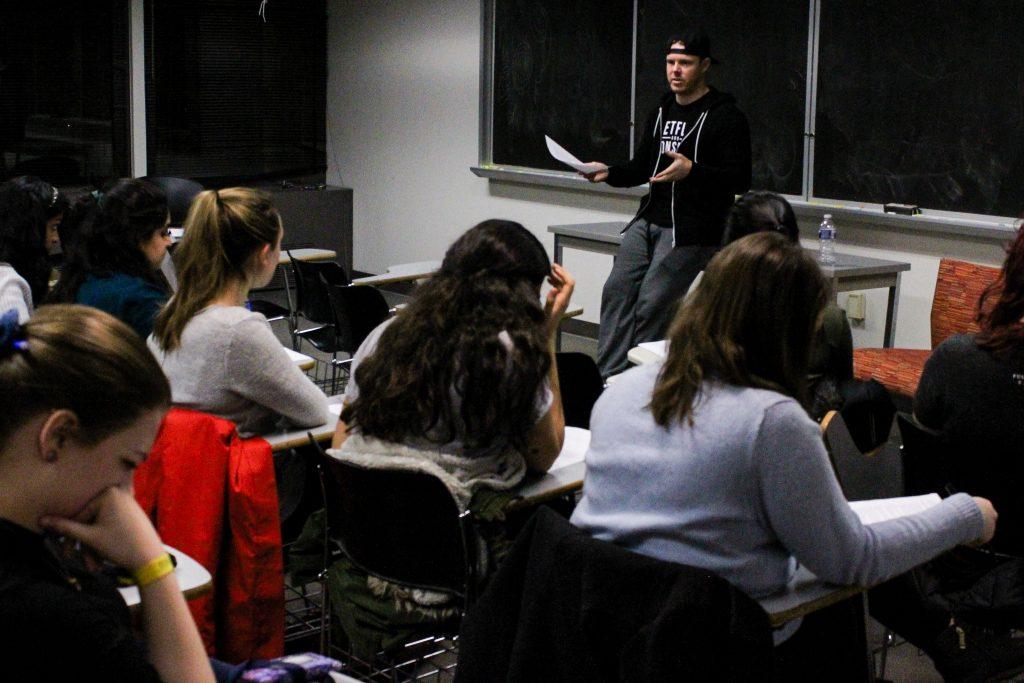A week after divisive protests and legislation, Students Against Sexual Assault met Tuesday to discuss the future of Title IX policy.
The nonpartisan group had their first policy meeting of the semester on Tuesday night, attracting about 20 students to hear about how Title IX, a federal law that protects students from discrimination on the basis of sex, could potentially look under President Donald Trump’s administration, followed by a how-to on pushing a stuck act through Congress that could impact how colleges handle cases of sexual assault on campus if passed.
“The purpose of discussing these things is not to lean one way or another because, regardless of who is in office, we’re going to take a stand on issues involving sexual assault and sexual violence,” Kalpana Vissa, the co-president of SASA, said at the event.
Vissa said the group is making an effort to be more action-based this semester, beginning with Tuesday’s discussion on how to reintroduce the Campus Accountability and Safety Act to Congress by having SASA members call their local representatives.
Gavin Coble, the SASA director of policy and outreach who spoke at the event, equipped members with a sample script for phone calls and emails.
“We know they’re all very busy right now, but this is something we all care about,” Coble said.
While the group said they are remaining nonpartisan and keeping similar goals from past years, there were some glimmers of disdain toward the new White House administration during the event.
Guest speaker Kimya Forouzan, an alumna who is interested in gender issues, filled in for a representative from Title IX who cancelled. She spoke more explicitly about some potential reasons for concern under the new administration.
“Nothing is known for certain yet, but there are reasons to be concerned going forward,” Forouzan said, speaking to the group via Skype.
Forouzan, who is now a public health student at Temple University, said, “most Republicans think sexual violence should be dealt with by police,” rather than university responsibility.
SASA’s aim in pushing the Campus Accountability and Safety Act back to Congress is to redirect responsibility onto campuses, rather than full police responsibility. Coble said the Act has a more uniform approach to cases of sexual assault and violence, which includes general protocol on how to handle reported cases.
The group has fought for policies before. In 2015, SASA members marched to Rice Hall demanding in-person, mandatory sexual assault prevention training after administrators initially said the training would only be offered online. University officials then announced that they would require in-person sexual assault education for all incoming students.
Amber Singh, a head peer educator in SASA and a former Hatchet reporter, said the University’s Title IX process is one of the most thorough out of all its peer schools, but officials should continue to work to improve the process.
“Just because we are one of the best does not mean we shouldn’t stop improving,” Singh said.





